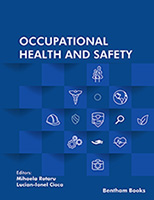“Nurses support oppression when they actively participate in oppression; deny or ignore oppression; or recognize oppression but take no action. Noticing or witnessing oppression, and taking the moral stance that it is none of our business, or that it is someone else’s responsibility to speak up, is the same as not doing anything in the face of need – silence is assent.”1
Ethics, as a discipline and as an intellectual pursuit, has existed for thousands of years and has sought to resolve questions on human morality. Health care professionals are faced with uniquely complex ethical questions every day on continuously evolving topics such as the withdrawal of treatment, medical assistance in dying, resource allocation, the use of substances, and reproductive rights and technologies. Being equipped with an understanding of ethics is crucial in providing nurses with the needed skills to speak up when they encounter ethical situations, and to work collaboratively toward a resolution with the client and their family at the center of the health care team.
Nurses work in wide variety of areas beyond acute care settings, including in the community, long term care, assisted living facilities, forensic systems, and postsecondary institutions. A study of nursing of ethics is not only critical in equipping nurses to understand their own perspectives, but also in respecting and understanding the perspectives of others who may differ from their own. Working collaboratively requires a team that can clearly communicate and articulate their roles and viewpoints. This, in turn, enhances the quality of care provided, helps to improve client outcomes, and increases job satisfaction for health care providers (Weiss, Tilin, & Morgan, 2018).
I have been fortunate to work in a number of clinical areas both within Canada and overseas. Before embarking on a graduate degree in nursing, I distinctly remember the early years I spent practicing as a nurse in various clinical areas, and the moral questions that would keep me awake at night. A few years ago, I slowly began to realize the impacts of trauma and violence on physical, mental and emotional health and how these health effects can be compounded by poverty, oppression, stigma, racism, substance use, as well as pervasive systemic violence. As a nurse, I found myself becoming more and more uneasy by the labeling and stigmatization of patients, and particularly of women seeking pain treatment who were dismissed as “drug-seekers.” It was my frustration and confusion with this very term, and my gradual awareness of the harmful discourses that are deeply embedded and normalized within health care practice environments (Doane & Varcoe, 2015) that became the catalysts in my pursuit of graduate studies. I completed my MSN degree exploring women’s pain experiences in relation to pressing health concerns and the need for creating culturally safe environments for clients, families and health care providers alike. In my graduating project, I made several recommendations for nursing education, health care, and research that asked nurses to engage with other key stakeholders in addressing the ethics of adequate pain treatment and assessment while exploring the unique circumstances and experiences of Indigenous women as a case in point (Heino, 2018). Nurses have both the opportunity and an ethical responsibility to provide the best quality of care possible and to ensure all individuals feel safe and respected, especially when they are at their most vulnerable.
To become a nurse is to embark on a lifelong learning journey requiring openness, humility and the ability to embrace the inherent complexity of the health care system and of relationships. Health care providers are shaped by their knowledge, experiences, and their interactions with clients and with members of the health care team. Given the emerging societal awareness of the necessity of embracing diversity and inclusion, it is critical that nursing students and nurses to engage in ongoing reflection throughout their education and beyond, so that they continually unpack their own assumptions as they provide care. Bias can be both conscious and unconscious, and it can influence clinical decision making in ways that can have profound impacts on patient outcomes (Pauly & Browne, 2015; Persaud, 2019). It can take great moral courage to have the self-awareness to continually self-evaluate and self-assess as we journey toward understanding and change.
When the author of this book asked me to contribute the foreword, I was delighted and I was greatly encouraged to see how the elements of dignity, trust, and respect are front and center throughout. Her writing resonates with many of my own experiences. Dr. Stephany has a distinguished set of qualifications, knowledge, and experience as a nurse, psychologist, educator, ethicist and author that uniquely qualify her to speak about the practice of applied ethics in nursing. Throughout her book, she provides research and specific examples to help bring the concepts and ideas she explores within its pages to life. While many of us come into nursing knowing about ethics on some level, being given the language with which to understand these ideas is crucial in defining nursing to ourselves and to the people with whom we collaborate. Throughout the chapters, there are boxes and tables that highlight especially useful and salient information such as definitions, narratives and cases in point that assist the reader in integrating the concepts with actual clinical practice. In my experience as an educator, giving students such examples to consider and work through is a powerful learning tool that helps to consolidate learning and prepare students for what they might encounter in their practice.
Technological advancements and shifting societal norms and values are changing the landscape of the health care system. Nurses have a duty and a responsibility to continually reflect on their practice using an ethical model throughout their professional careers (Canadian Nurses Association, 2017). The inevitable ethical situations that arise in everyday nursing practice can have enormous implications for clients and families. Having the skills and tools to navigate the uncertainty of these waters can mean the difference between life, and death, for clients who place their trust in the health care team. A solid footing in ethics can guide nurses in their decision-making and help them to become key contributors, and leaders, in this process. This book will serve the reader well on their journey in developing into a thoughtful, ethical and compassionate practitioner. It is a must-read for students and clinicians alike.
NOTES
1McGibbon, Mulaudzi, Didham, Barton & Sochan, 2014, p. 187.
References
Canadian Association of Nursing (2017). Code of Ethics for Registered Nurses. https://www.cnaaiic.
ca/~/media/cna/page-content/pdf-en/code-of-ethics-2017-edition-secure-interactive
Doane G.H, Varcoe C. , . (2015). How to nurse: Relational inquiry with individuals and families in
changing health and health care contexts.. Philadelphia:: Wolters Kluwer, Lippincott Williams &
Wilkins;
Heino A. N. (2018, April 30). Toward a better understanding of the chronic pain experiences of
Indigenous women who experience violence: Implications for nursing education, practice and research
[G]. doi:http://dx.doi.org/10.14288/1.0365526.
McGibbon E, Mulaudzi F.M, Didham P, Barton S, Sochan A. [http://dx.doi.org/10.1111/nin.12042]
[PMID: 23837570] (2014). Toward decolonizing nursing: The colonization of nursing and strategies for
increasing the counter-narrative. Nursing Inquiry, 21(3), 179-191.
Pauly B.B, McCall J, Browne A.J, Parker J, Mollison A.
[http://dx.doi.org/10.1097/ANS.0000000000000070] [PMID: 25932819] (2015) Toward cultural safety:
Nurse and patient perceptions of illicit substance use in a hospitalized setting. Advances in Nursing
Science, 38(2), 121-133.
Persaud S. [http://dx.doi.org/10.1097/NAQ.0000000000000348] [PMID: 30839450] (2019). Addressing
unconscious bias: A nurse leader’s role. Nurs Admin Q, 43(2), 130-137.
Weiss D, Tilin F, Morgan M. , . (2018). The interprofessional health care team: Leadership and
development, 2nd ed. Burlington, MA: Jones & Bartlett Learning.
Angela Heino
New Westminster
British Columbia





